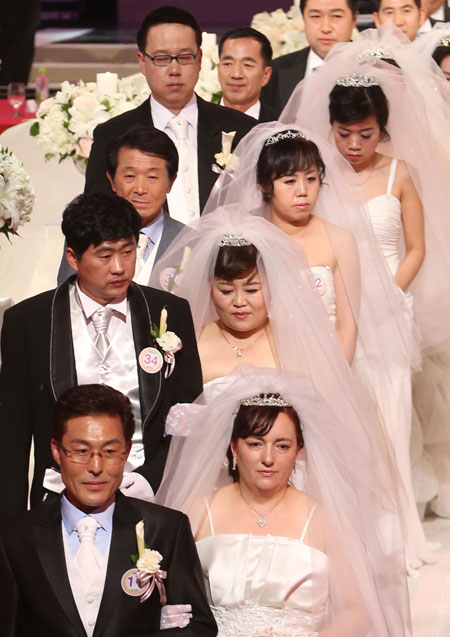You are anticipated to work constructively and co-operatively maintaining good popularity and requirements always. Moreover, you have to be receptive and optimistic to performance appraisal, advice and feedback. These constitutional and authorized provisions are a reflection of the patriarchal and paternalistic societal order that Nepal nonetheless is; it is severely impacting the lives of Nepali girls and their kids. Constant arguments in favour of the Citizenship Act 2006 from elected parliamentarians citing issues of nationwide safety with paternalistic and xenophobic undertones have frequently made headlines in latest times. Government officials are nonetheless hesitant to offer citizenship to kids of single women despite many progressive judgements from the judiciary that recognise this right.
A proposed regulation in Nepal that might ban girls from travelling abroad without permission from their households and local authorities officials has been known as unconstitutional and “ridiculous”. The tendency for violence just isn’t only as a end result of abuses of males, as a result of the assumption in witchcraft amplifies the phenomenon and sentences every lady suspected of witchcraft to death by burning. The patriarchal tradition thus became a pretext in the trivialized use of violence against women. The situation since 2010 has been this; the primary cause of death of ladies between 15 and 49 years is suicide. An “extreme answer”, which sadly resembles a headlong rush to interrupt the isolation imposed by the legislation of the patriarchy. Once married, often compelled to and sometimes minor, a single girl can not return to her dad and mom. She must obey her husband and keep by his aspect, even just for monetary reasons.
In 2009, Nepal enacted the Social Customs and Practices Act outlawing dowry; however, there have been no identified circumstances of enforcement. Women usually are not optimistic that their complaints can be significantly heeded by the authorized mechanisms. Thus they are taking to social media as an alternative to raise consciousness of the problem. Nepal has excessive rates of violence towards girls and a number of other government companies and NGO-led campaigns have been carried out to curb such violence.
Nepali Hot Girl…A Good Present For Friends
There is a widespread perception that one thing unhealthy will happen if they don’t adhere to the tradition. While some villages within the mid- and far-western areas have begun dismantling chhaupadi huts with the assistance of police, Maharjan fears that it’s only a publicity stunt. And as a outcome nepal women of some of the sheds are multipurpose and used for housing animals, destroying them could simply be an impossible task. A regulation can’t simply override a practice that is written in Hindu scriptures, they argued.
Inspired by actual life occasions, Saferworld has produced a brief film showing the essential position girls in Nepal can play in providing security, notably within the police pressure. The empowerment of women is vital for increasing the prosperity and lifestyle in local communities, areas and Nepal as a whole. The Women’s Empowerment Program builds upon the initiatives and work of the Nepalese authorities and NGOs at an area level, addressing the issues and meeting the needs of communities.

WFN supplies girls and youngsters with a secure Shelter Home and covers all their needs, for instance access to educational alternatives, skills coaching and in the end a correct job. The ladies and youngsters are also provided with medical, psychological and authorized assistance. A elementary shortcoming of the legislation is that it depends on a lady going to a police station to report a member of the family. This assistance is welcomed in the civil society, which additionally works to improve the dwelling situations of ladies by bringing medical care, assistance and food. But the NGOs have a hard time reaching the regions close to the mountains and those near the epicentre of the earthquake, zones inhabited largely by girls and youngsters. In the younger Republic of Nepal, a woman becomes a citizen provided that her father or husband authorizes it. The female condition in itself makes her impure for neighborhood life throughout her menstruations or after childbirth, which finally ends up in her being quickly excluded from the family house.
They usually have to stroll miles, carrying heavy hundreds, and queue for hours to get water for his or her families. Without latrines, many are compelled to alleviate themselves within the fields or forests before dawn or after dark. They are uncovered to many risks, including that of harassment and even assault. Having to attend for lengthy hours to defecate and urinate can additionally be uncomfortable and might cause critical diseases.
They might not feel pleased or content material in the path of these practices, however, this is an example of how social construction performs a major position in shaping and figuring out routine behaviours including health life-style. In this case, maybe broader social structure (i.e., fatalistic ideology and dominant cultural practices) downplays the function of particular person company (i.e., the need to stop these practices). Unable to modify habitus, girls might really feel ambivalent as they maintain accepting and practicing menstrual restrictions. Although it’s true that roles and standing of women in modern Nepalese society has undergone a massive transformation and their rights have been secured by the constitution, enforcement exterior the few major cities has been a lax. In these remote places, gender disparity still exists, girls’s have limited management or saying, ladies are restricted to household works, disadvantaged of education, discriminated based on caste, and have poor healthcare entry. Existing laws are inadequate to cope with sexual offenses and Nepal has no law to cope with sexual harassment.
“Poor ladies should not be victimized simply due to the state’s failure to take action in opposition to the perpetrators.” At a time when folks of the nation are speculating how the Supreme Court will rule on the legality of the dissolution of the House, neither faction of the Nepal Communist Party has responded to the proposed immigration law. But with the anger directed at the government, many really feel the protest might harm the already susceptible Oli probably the most. Even beyond the current controversy, he has been described as an “anti-women” chief several times. His government is underneath criticism for failing to deliver to justice these responsible in a giant quantity of rape cases .

They are also not supposed to touch livestock; if a calf or goat strays into their hut, they have to yell for another person to shoo it out, out of concern the animal will get sick. During the day, the menstruating girls work in the fields like everybody else, although they ensure to not are available contact with other villagers; at night, they go to the huts. From the earliest age, people listed beneath are taught that any contact with a menstruating girl will bring unhealthy luck. Each 12 months, no much less than one girl or girl — usually more — dies in these huts, from publicity to the cold, smoke inhalation or attacks by animals. Just this June, another young girl was discovered useless in a menstruation hut, bitten by a snake. Her family tried to cowl up the dying, the police said, by destroying the hut and quickly burying her physique, but the authorities exhumed it and are investigating what occurred. Women, Children and Senior Citizen Service Center was established inside Nepal police in 1996 as a pilot project in 4 districts and one at central stage in Police Headquarters as governing body.
List of the demographic variables and variables/ questions on menstrual hygiene, practice, social and cultural perceptions are offered in Supplementary Document 1, Additional File1. This examine throws light on current social discriminations, deep-rooted cultural and religious superstitions among girls, and gender inequalities within the city areas of Kathmandu valley in Nepal. Targeted training and consciousness are wanted to make modifications and balance between cultural and social practices throughout menstruation.
Further, nearly all of these girls don’t have access to proper toilets, clean water, sanitary napkins/ menstrual pads/ tampons or the privacy to change or get rid of menstrual hygiene supplies . They are embarrassed to have their intervals and depend on used, damp, cotton cloths or rags to control menstrual bleeding . Because of social taboos, women, particularly in rural remote areas, are unable to correctly wash and dry used menstrual cloths; reusing unhygienic cotton cloths as an alternative of clean sanitary napkins and cloths is a standard apply in low and center income international locations . There have been multiple reports of ladies growing reproductive tract infections , abnormal vaginal discharge and different health circumstances due to poor menstrual hygiene practices in international locations like India, Nepal and Bangladesh . In the Hindu majority country of Nepal, faith and caste/ethnicity play big roles in sculpting socio-cultural norms.

